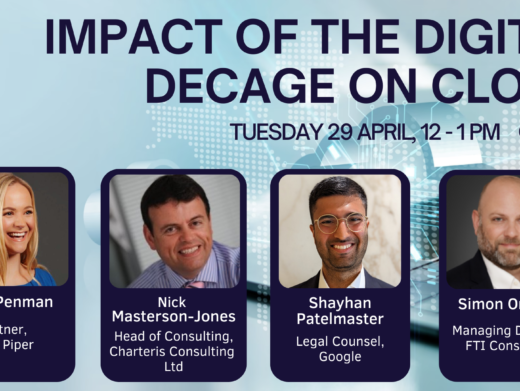The UK government has announced a White Paper on broadcasting. It says that rapid changes in technology, viewing habits and the emergence of global media giants have brought new challenges for UK broadcasters. The proposals that will be of particular interest to SCL members are those relating to video-on-demand platforms and extending the listed events regime to cover digital and on-demand content.
Ofcom estimates 75% of UK households use a subscription VoD service. However, services like Disney+ and Amazon Prime Video are not regulated in the UK to the same extent as UK linear TV channels. Netflix and Apple TV+ are not regulated in the UK at all.
Except for BBC iPlayer, on-demand services are not subject to Ofcom’s Broadcasting Code which sets standards for content including harmful or offensive material, accuracy, fairness and privacy. There are some protections for under-18s but minimal rules exist to protect audiences from, for example, misleading health advice or pseudoscience documentaries.
The government will give Ofcom powers to draft and enforce a new Video-on-Demand Code, similar to the Broadcasting Code and in line with its standards, with the aim of ensuring VoD services, which target and profit from UK audiences, are subject to stricter rules protecting UK audiences from harmful material. This will primarily be aimed at larger ‘TV-like’ video-on-demand services such as Netflix, ITV Hub and NOW TV and harmonise the rules between VoD services and traditional broadcasters.
UK viewers will be given new powers to complain to Ofcom if they see something concerning and the aims will be to better protect them from harmful material. Ofcom will be given a strengthened duty to assess on-demand providers’ audience protection measures such as age ratings and viewer guidance, with powers to force changes if necessary. The maximum fine for regulated VoD services will be £250,000 or an amount up to 5% of an organisation’s revenue, whichever is higher.
Listed events regime
The government also intends to review the listed events regime (which covers major sporting events such as the Olympic Games, women’s and men’s football World Cups, FA Cup Final, Grand National and Wimbledon finals) to include digital rights, including on-demand rights.
Updating prominence regulation
The government says that public service content should be readily available to as wide an audience as possible and easy to find. Current broadcasting legislation guarantees the first five channels the public find when they switch on their TVs are public service broadcasters, by reserving these slots in electronic programme guides on TV sets. However, this does not extend to on-demand platforms which enable viewers to select TV programmes beyond the TV guide, such as the user interfaces on Smart TVs.
Therefore, the government plans to require online TV platforms to carry designated public service broadcasters’ on-demand services and give them prominence, as determined by Ofcom, so they are easy to find on user interfaces in the future. The rules will require public service broadcasters to “offer” their on-demand services (BBC iPlayer, ITV Hub, All 4, My5, STV Player, S4C Clic) to platforms while requiring platforms to “carry” these public service broadcasters’ on-demand services.
Ofcom will be given new enforcement powers, including information gathering powers and the ability to impose fines as appropriate. It will be given a dispute resolution function to intervene to support effective negotiations between platforms and public service broadcasters.
Response to the Digital Radio and Audio Review
The government has also published its response to the Digital Radio and Audio Review. It says that it will continue to engage with the radio industry to gain a better understanding of the policies and practices of smart speaker platforms.
The government intends to legislate as soon as the parliamentary timetable allows.




